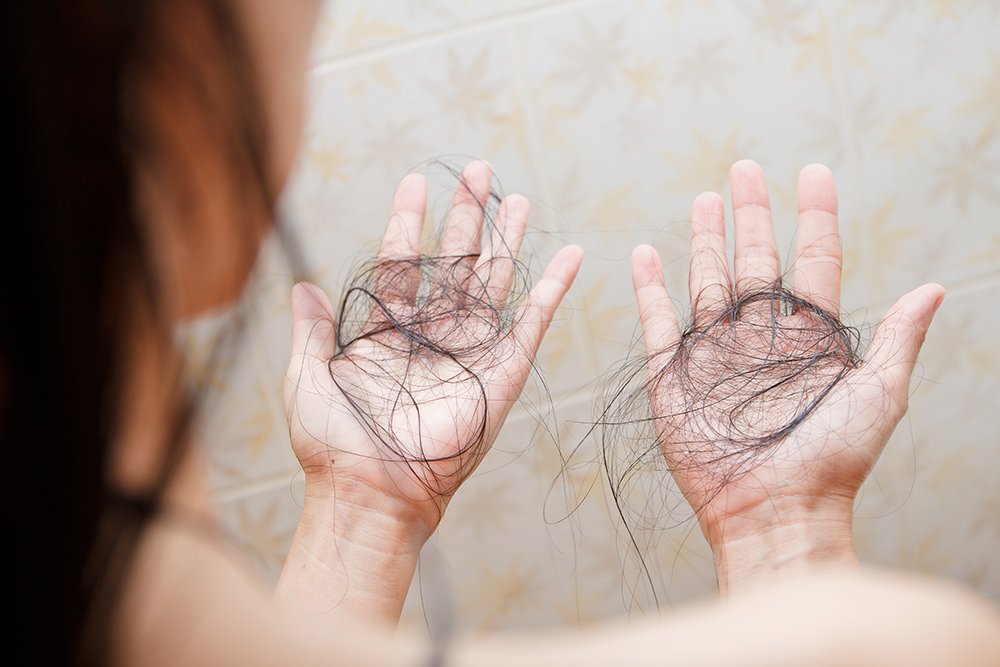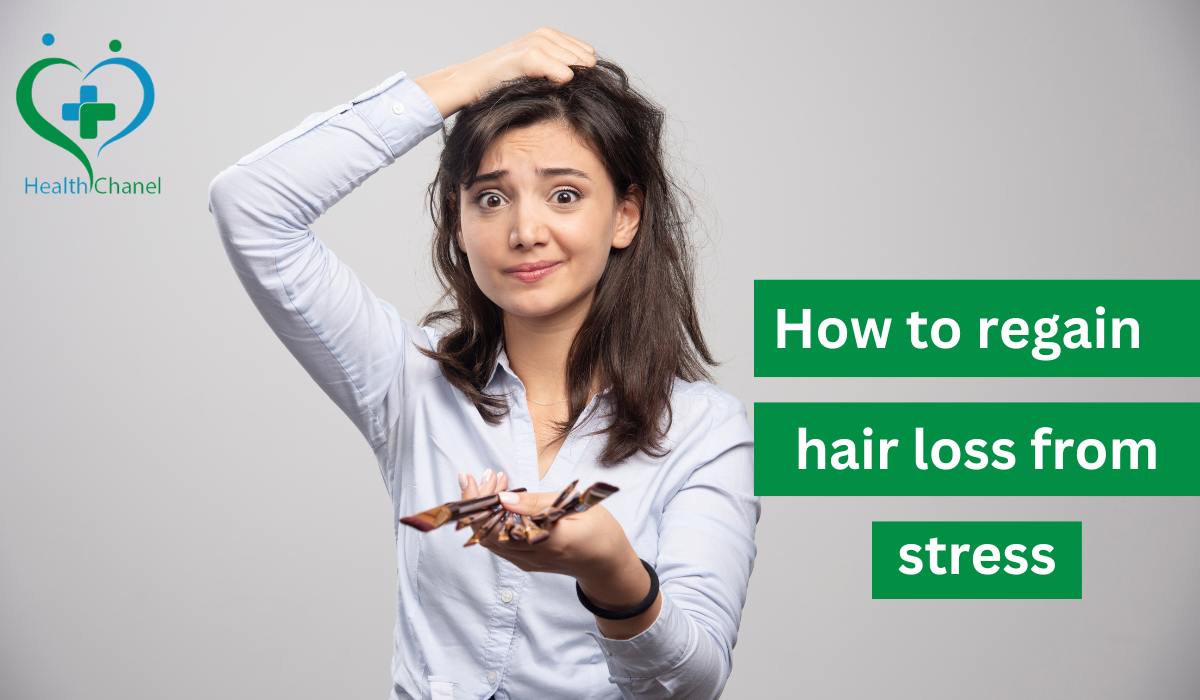Experiencing hair loss can be a deeply unsettling experience, and when stress is the culprit, it can feel even more overwhelming. Many people notice their hair starting to fall out during particularly stressful periods in their lives, which can lead to feelings of anxiety and frustration.
If you’re wondering, “How to regain hair loss from stress?” or “My hair is falling out from stress, what can I do?”, this article is here to offer guidance. Stress-induced hair loss, also known as stress related hair loss pattern, can be distressing, but the good news is that it is often reversible with the right steps. Let’s dive into how stress leads to hair loss and what you can do to regain your healthy hair.
How Stress Leads to Hair Loss
Hair loss due to stress is more common than many realize. Stress can cause a condition called telogen effluvium, where hair prematurely enters the resting phase of the growth cycle, leading to noticeable shedding. This is typically temporary, and stress-induced hair loss regrowth is possible once the stress is managed. However, the emotional toll of seeing hair falling out from stress can make the process even harder.
Stress Hair Loss in Females
For many women, stress hair loss female is a significant concern, especially as hormonal fluctuations from stress can exacerbate the problem. The effects can manifest as stress-related hair thinning, where thinning occurs gradually, affecting the overall volume of hair. Women might also notice that their hairline or part appears more noticeable, which can be discouraging.

Can Stress-Induced Hair Loss Grow Back?
One of the most frequently asked questions is, “Hair loss due to stress, will it grow back?” The short answer is yes. In most cases, stress-induced hair loss is temporary, and once the underlying stress is addressed, hair will start to regrow. However, the time frame varies from person to person. It can take several months for your hair to return to its full thickness, so patience is key during this process.
Steps to Reverse Hair Loss from Stress
- Manage Stress Effectively
- The first step in reversing stress-related hair loss is reducing the stress. Practicing relaxation techniques such as meditation, yoga, or deep breathing exercises can help lower stress levels significantly. Regular physical activity, sleep, and proper diet can also support stress reduction.

- Scalp Care and Hair Growth Products
- Consider using gentle shampoos and conditioners specifically designed for stress-induced hair loss. Hair growth serums that contain ingredients like biotin, caffeine, or keratin can also stimulate the scalp and promote regrowth. These products can support the restoration of hair follicles that were affected by stress.
- Balanced Diet and Supplements
- A well-balanced diet rich in vitamins and minerals, including iron, zinc, and B vitamins, can help strengthen hair. Supplements such as biotin and collagen can also support hair regrowth.

- Consult a Dermatologist
- If you’re struggling with hair falling out from stress or noticing a pattern of stress-related hair thinning, consulting a dermatologist is a good idea. They can help identify the root cause and recommend targeted treatments to promote hair regrowth.
Help for Hair Loss Due to Stress
If my hair is falling out from stress, what can I do? The first step is to manage your stress levels effectively, but also consider adding treatments like stress hair loss serums or products designed to promote thicker, healthier hair. With consistent care and lifestyle changes, hair loss due to stress can be effectively reversed.
Conclusion: Regaining Hair After Stress
The emotional impact of seeing stress-related hair loss pattern can be difficult to cope with, but with the right approach, hair loss due to stress will it grow back becomes less of a question and more of a process of recovery. By reducing stress, maintaining a healthy diet, and using the right products, reversing stress-related hair loss is possible. Patience is essential, but rest assured that with the proper steps, your hair can regain its health and vitality.

